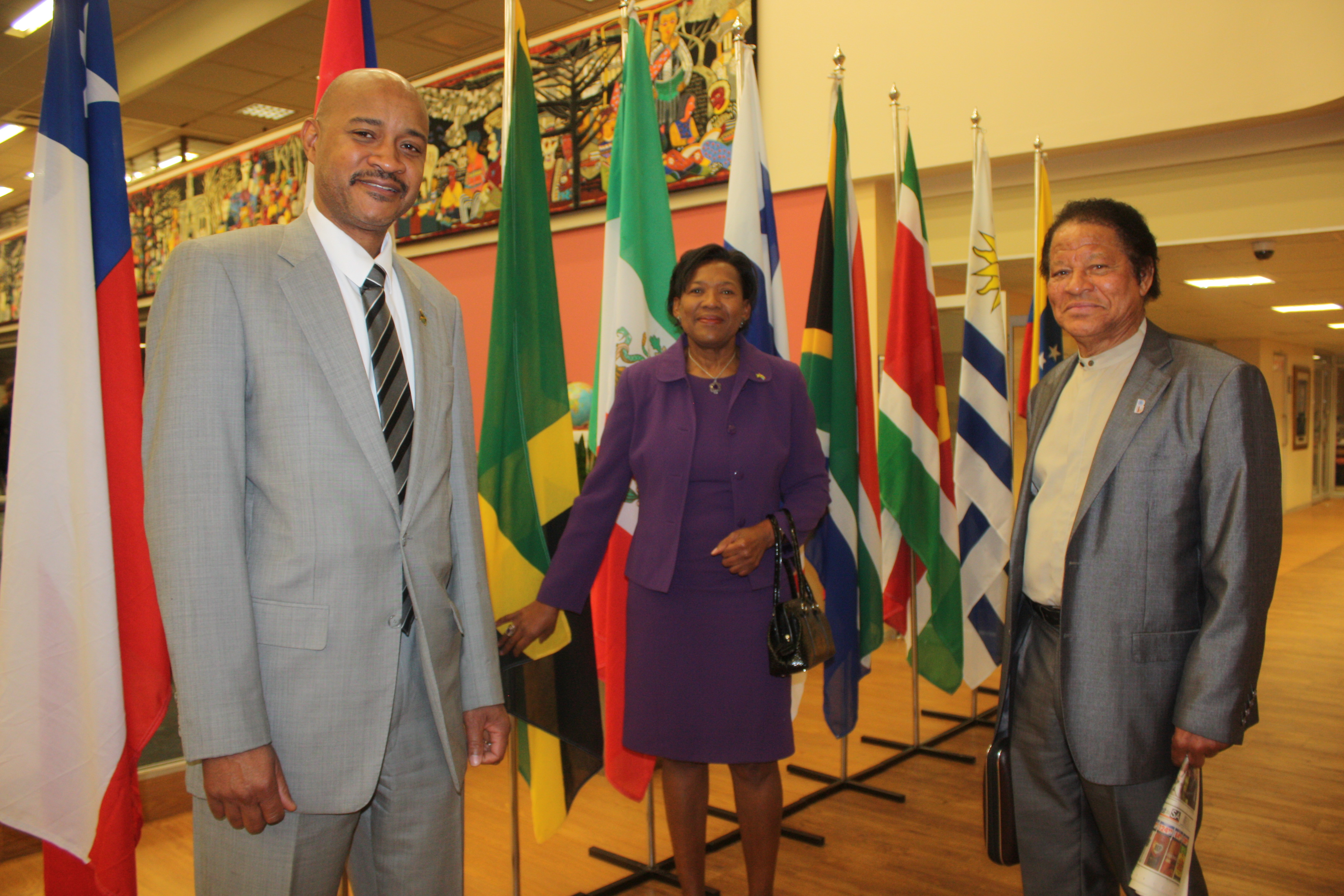Posted on October 28, 2013
Deliberations ranged from political, economic and social issues related to these Southern Countries. The University of Pretoria has relationships with some of the GRULAC countries and agreements have already been signed with Argentina, Brazil, Jamaica, Mexico, Trinidad and Togo.
The partnership between the University of Pretoria and the GRULAC countries deals with emergent South-South collaborations between developing countries which often have common experiences and challenges in the 21st century. The collaboration between the University of Pretoria and these countries will result in student’s exchanges and a number of joint projects between the academic institutions of these countries. The focus of the collaboration will be on key themes such as democracy in developing countries, human rights issues, food security, educational challenges and poverty eradication.
The Vice-Chancellor and Principal of the University of Pretoria, Prof Cheryl de la Rey, said universities around the globe seek to internationalise their programmes. She said in the early 90’s, academic internationalisation at academic institutions was a global phenomenon as a result of faculty collaborations and student exchanges, predominantly in Northern America, the UK and other European countries. She said, however, the process of internalisation at academic institutions in the African region has started late, largely because of the history of colonisation, and in the South African context apartheid, which also contributed to a process of internationalisation. ‘Internationalisation at the University of Pretoria, as an African university, is a new concept and a recent objective for our institutional strategy,’ she said.
Prof De la Rey said internalisation has become an integral part of the University of Pretoria’s strategic agenda which is essential for the University of Pretoria to put the country on a global map. ‘We believe internationalisation is a core part of the curriculum if we are to educate and develop leaders of the future. Our aspiration is not only to produce South African graduates with a set of theoretical and technical skills, but also graduates belonging to the world,’ she said.
The Dean of the Faculty of Humanities at the University of Pretoria, Prof Norman Duncan, has been involved in the initial preparation for the collaborations. He said the initiative of cooperation between the University of Pretoria and GRULAC communities will also play a role in internationalisation and it will also help the University to achieve its main objectives, amongst others, of being a leading research-intensive institution, enhancing its international profile and strengthening its impact on economic and social development. ‘This Southern exchange initiative is of critical importance to us as it fits in with every faculty’s plan. This will also be beneficial in forging links not only with the faculties of the University of Pretoria, but also across other institutions,’ he said.
The Dean of GRULAC countries, and also the High Commissioner of Argentina in South Africa, His Excellency Carlos Sersale di Cerisano, said the concept of diplomacy is not only between governments, but also between academic institutions, resulting in strong academic ties. He said this is evident in the concept of South-South collaboration initiated at the University of Pretoria, which will also encourage student and professional exchange programmes among the countries. ‘Argentina has had academic ties with the University of Pretoria since 2009, and there has been a need to extend this to other Latin-American and Caribbean countries. Research areas and joint academic programmes will be developed in different faculties between the academic institutions of the countries,’ he said.

Attending the conference were (from left to right) Mr John Clarke, Minister-Counsellor from the Jamaican High Commission in South Africa; Her Excellency Norma Taylor-Roberts, High Commissioner of Jamaica in South Africa; and Professor Earle Taylor, who presented a paper on engaging the diaspora for National Development.
Copyright © University of Pretoria 2025. All rights reserved.
Get Social With Us
Download the UP Mobile App